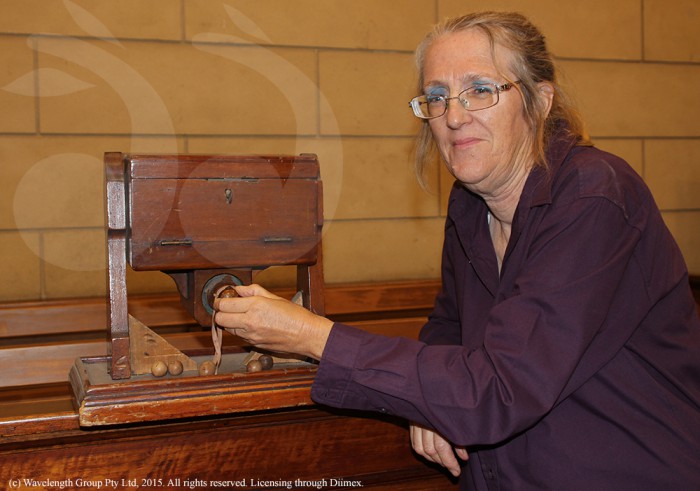Sconeite Snippet – Veronica Antcliff
“One of the most memorable court proceedings I recall was a person who had pleaded not guilty to an assault charge and was defending himself,” recalls Veronica Antcliff.
“The victim had owed his mother money and he went to great lengths to get the money back and was telling a very long winded story,” she said.
“In the middle of his story he turned to the victim and said ‘look I am sorry I hit you’ and went to continue, when the magistrate interrupted and said “I take it that’s a change to a guilty plea?”, laughed Veronica.
Veronica Antcliff has been Scone’s registrar of the local court for 13 years and has witnessed many entertaining antics from courtrooms throughout regional New South Wales.
Veronica said she has never been drawn to the courtrooms of the major cities, preferring the variety of work in the country.
“I’m a country girl, I was born in Mildura and I’ve enjoyed working throughout regional New South Wales for the last 35 years,” said Ms Antcliff.
“There is a much greater variety of work as the registrar in regional areas, because we do work for other government departments as well,” she said.
“For example fair trading, births, deaths and marriages, marriage celebrants and fishing licences, it’s much more than being in the city court where you just do criminal or civil claims,” Veronica Antcliff said.
Veronica is also passionate about the history of the local court house and published a book From Convicts to Comedies – A history of Scone’s Court Houses.
Her interest in the history of the old courthouse was sparked when she was involved with the local dramatic society and their efforts to restore the building.
“I went searching on Trove for the history of the old court house building and found so much that I wrote a book,” said Veronica.
“The youngest person I came across who went before the court was an eleven year old boy, Albert Bolton, who was sent to gaol for six months for putting rocks on the railway line between Scone and Wingen.
“They didn’t have juvenile detention in 1881 and he was sent to an adult gaol,” she said.
“There were lots of interesting things that went on in those days, including a gala day to burn dingo scalps,” said Veronica Antcliff.
The old court house in Kingdon Street was also the meeting place for the Murrurundi Pastures and Stock Protection Board, which paid rewards for the scalps of noxious animals.
Noxious animals included marsupials, native dogs and rabbits and after the scalps had been received by the Board, they burnt them at a gala day.
“I found a quote in the Maitland Mercury describing the gala day in 1882”:
“The amount of scalps received were as follows: 14500 kangaroo and wallaby, and 5 native dogs. I am sure no-one envies them their onerous duties. Receiving the scalps is bad enough, but having to stand over them while they are burnt is, I should imagine, rather too much for anyone’s (unless they are genuine Salamanders) olfactory nerves.”
By 1870 the judges were complaining about the old courthouse building and they started sitting at Murrurundi instead.
The District court moved back to Scone in 1950 when the new courthouse on Main Street was built.
Now the district court is in Newcastle or Tamworth, but Veronica jokes about the positives of no longer being the district court:
“No one here has to do jury duty because it is so far away, so there is an upside,” she smiled.
While the history of the courthouse buildings was interesting to her, Veronica said it was more than buildings, it was the story of local people.
In the early 1800’s there were limits of location and Scone was at the edge of settlement and the law.
“When the Myall Creek massacre occurred in 1838, it was reported in Scone and the Magistrate was sent across to investigate; it was the first time whites were convicted and executed for killing Aboriginal people,” she said.
“It was also in Scone that the first female clerk of petty sessions in New South Wales was appointed.
“Rosemary Vandenberg was a Goulburn girl who had answered an ad in the local paper to become a clerk, she worked in several places as she progressed in her career and it was in Scone that she became the first female clerk off petty sessions,” Veronica Antcliff said.
Scone made history when the first female clerk of petty sessions worked here and now it is lucky to have Veronica Antcliff, a female registrar that has preserved and shared so much of its history.
You can purchase Veronica’s book From Convicts to Comedies – A History of Scone’s Court Houses from the local courthouse, Hunt A Book or the Scone and Upper Hunter Historical Society.
 scone.com.au
scone.com.au